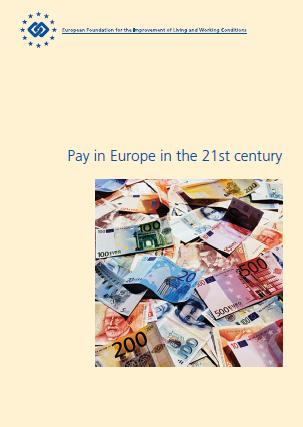Gros, D. (2014) “Relative direct democratic legitimacy“, Economic Policy, CEPS Commentaries, 26 Ιουνίου. As the European Council convenes today and tomorrow (June 26-27th) to confirm Jean-Claude Juncker as the candidate for President of the European Commission, CEPS Director Daniel Gros shows in this Commentary that the Council should de facto also be considered more a ‘mini parliament’ than an assembly of states and that the European Parliament cannot claim …Read More
SME Market Report 2014 H1
The Central Bank of Ireland (2014) “SME Market Report 2014 H1“, Eurosystem, Ιούνιος. The Central Bank of Ireland’s SME Market Report is compiled by economists in the Financial Stability Division and aims to collate information from a wide range of internal and external sources to give an up-to-date picture of developments in the Irish Small and Medium Enterprise (SME) credit market. The Report will provide information on credit demand, …Read More
Georgia, Moldova and Ukraine’s signing of EU co-operation agreements marks their transition from ‘post-Soviet’ to ‘European’ states
Knott, E. (2014) “Georgia, Moldova and Ukraine’s signing of EU co-operation agreements marks their transition from ‘post-Soviet’ to ‘European’ states“, LSE EUROPP, 30 Ιουνίου. On 27 June, Georgia, Moldova and Ukraine signed co-operation agreements with the EU. Ellie Knott assesses what the agreements mean for each state and how they might influence future EU-Russia relations. She writes that while the agreements are largely technical in nature, their real value …Read More
The case against maxing out monetary policy
P.W. (2014) “The case against maxing out monetary policy“, Free Exchange–Economics, The Economist, 29 Ιουνίου. CENTRAL banks in the developed world continue to keep monetary policy as loose as possible for as long as possible in order to facilitate a stronger recovery from the painfully weak upturn after the financial crisis and the “great recession”. America’s Federal Reserve may be phasing out its programme of asset purchases but it …Read More
Euro crisis turning point: Two years of Banking Union – Europe’s leaders avoided their usual muddling-through complacency to do something radical—and it worked!
Véron, Ν. (2014) “Euro crisis turning point: Two years of Banking Union – Europe’s leaders avoided their usual muddling-through complacency to do something radical—and it worked!“, Bruegel Institute, 30 Ιουνίου. Europe’s banking union, constituting a supranational pooling of most instruments of banking policy, was established two years ago, in the early hours of June 29, 2012. To a greater extent than was initially realized by most observers, this step …Read More
EU firms’ access to external financing
O’Toole, C., Kay, N., Murphy, G. & Siedschlag, I. (2014) “EU firms’ access to external financing“, VoxEU Organisation, 29 Ιουνίου. Small and medium-size enterprises (SMEs) often report difficulties in obtaining external finance. Based on new research, this column argues that these difficulties are not due to greater financial risks associated with SMEs. Instead, they are the result of imperfections in the market for external finance that negatively affect smaller …Read More
On the transnational social question: How social inequalities are reproduced in Europe
Faist, Τ. (2014) “On the transnational social question: How social inequalities are reproduced in Europe“, Journal of European Social Policy, Vol. 24, No. 3, σσ. 207-222, Ιούλιος. What are the consequences of cross-border employment and social protection practices for social inequalities in Europe? The transnational social question is a multifaceted one: it is linked not only to inequalities generated by heterogeneities such as class, gender, ethnicity, legal status and …Read More
Fact of the week: Only 8% of banks says they will need to raise capital after AQR – the ECB’s Asset Quality Review in the eyes of bankers
Merler, S. (2014) “Fact of the week: Only 8% of banks says they will need to raise capital after AQR – the ECB’s Asset Quality Review in the eyes of bankers“, Bruegel Institute, 27 Ιουνίου. In December, we wrote a paper about the ECB’s comprehensive assessment and its aftermath. We identified significant uncertainty about the recapitalisation needs that would be identified by the ECB’s comprehensive assessment. Ernst and Young …Read More
Pay in Europe in the 21st century
Aumayr‑Pintar, C.; Cabrita, J.; Fernández‑Macías, E. & Vacas‑Soriano, C. (2014) “Pay in Europe in the 21st century“, European Foundation for the Improvement of Living and Working Conditions, Eurofound Research Project, Publications Office of the European Union, Luxembourg: Ιούνιος. The issue of wages has attracted particular attention at European level since the onset of the economic crisis. Changes in economic governance, notably within the European semester, have prompted discussions on …Read More
The magnetic pull of Europe’s soft power
Samadashvili, S. (2014) The magnetic pull of Europe’s soft power, EU Observer, Opinion Article, 27 Ιουνίου. As Georgia, Moldova, and Ukraine finalise association and free trade (DCFTA) agreements with Europe today (27 June), these Eastern Partners, together with the EU, are proving that while geography is destiny, history does not have to be so. The EU’s Eastern Partnership policy is the bridge which connects Europe to countries which were …Read More





